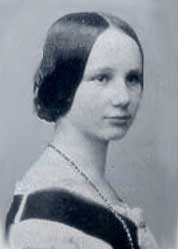It’s Ada Lovelace Day

As part of the celebrations, Flossie (news passim), the organisation promoting women’s involvement in free, libre and open source software, are organising a special event at Bletchley Park, the former wartime codebreaking centre and computing museum.
Augusta Ada King, Countess of Lovelace (b. 10 December 1815, d. 27 November 1852), who was born Augusta Ada Byron and is now commonly known as Ada Lovelace, was an English mathematician and writer chiefly known for her work on Charles Babbage‘s early mechanical general-purpose computer, the analytical engine. Her notes on Babbage’s engine include what is recognised as the first algorithm intended to be processed by a machine; thanks to this, she is sometimes considered the world’s first computer programmer.
However, it would appear that there’s a long way to go to encourage women in science, technology engineering and mathematics. According to statistics from the UK’s Joint Council for Qualifications, only 302 girls took Computing A-level (7.5% of the total entry) in 2011, compared to 3,700 boys (92.5%). The figures show Computer Science as the worst of all STEM subjects for the gender gap, – ICT 61% male /39% female; Mathematics 60%/40%; Physics 79%/21%; Chemistry 53%/47%).
Here in Bristol Wireless, we know for ourselves just how large the gender gap can be: we can count the numbers of female members/volunteers over our 10 years of existence on the fingers of one hand and of those, only 2 (Rachel and Llanos) are professionally employed in the fields of science, technology, engineering or maths.
However, perhaps things are looking up if we turn to the generation below that of the majority of our volunteers. Looking at our volunteers’ own families, we’re pleased to note that Rich’s niece is currently studying to be an astrophysicist, whilst in the chief scribe’s family, 2 younger members are currently studying STEM subjects: one niece is now reading mathematics at Imperial College, London and another is reading IT in Leeds.
